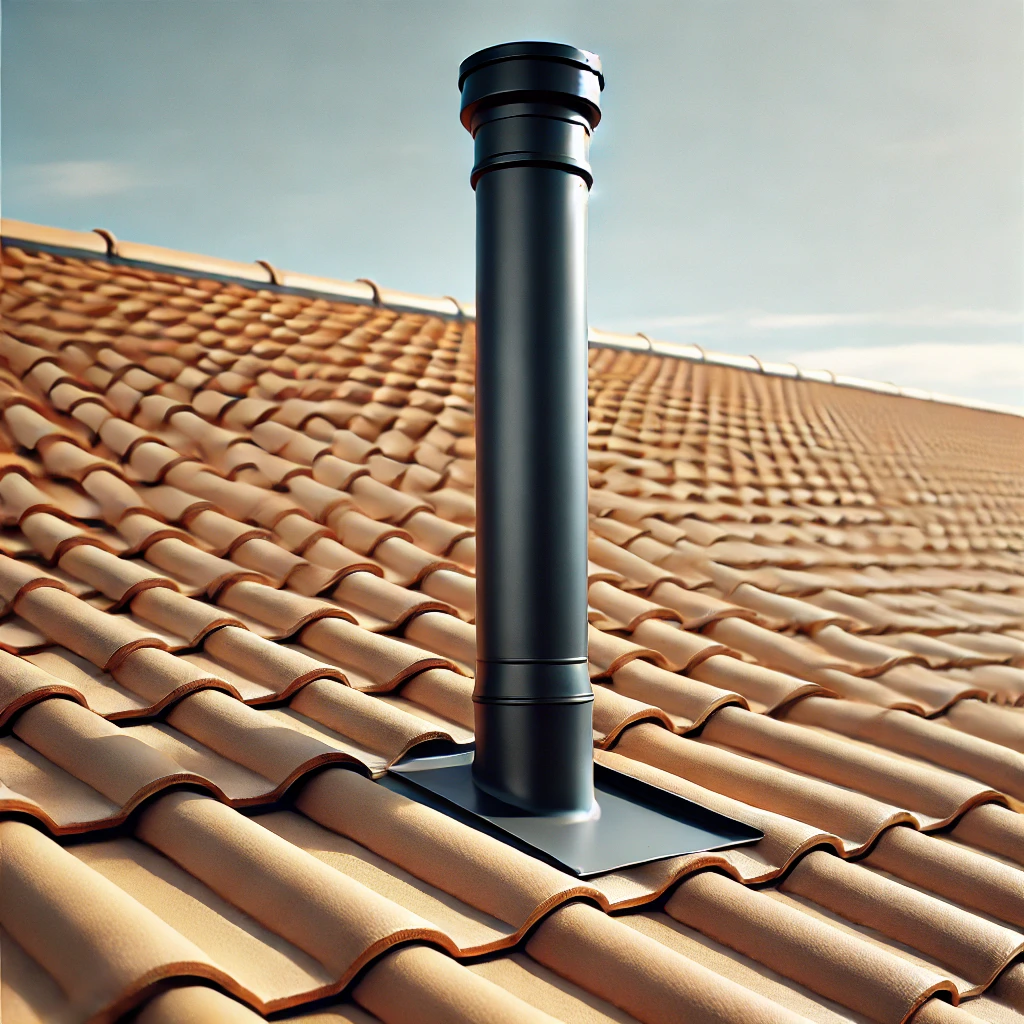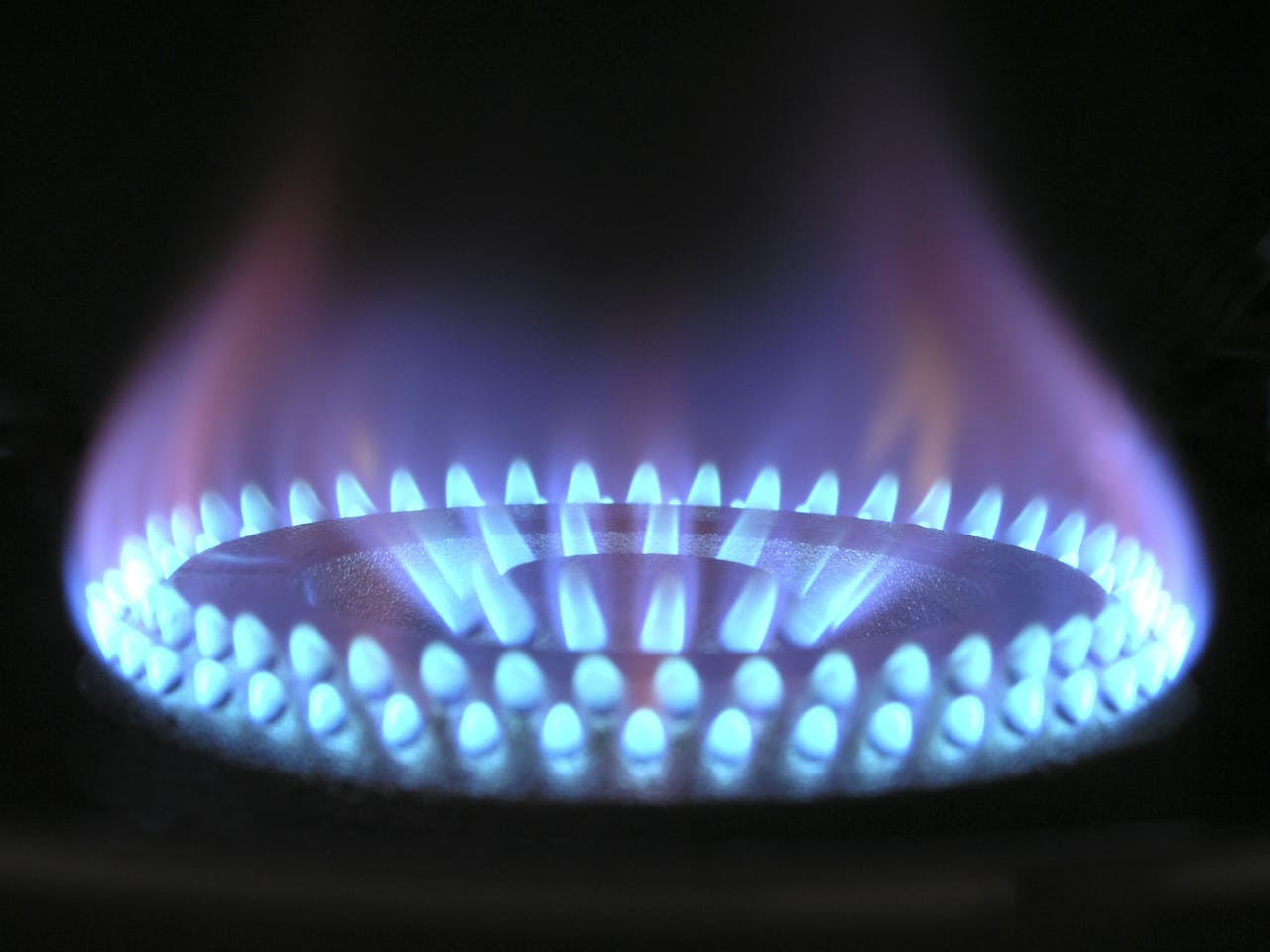When it comes to maintaining a safe and efficient home heating system, understanding each component is crucial. One often overlooked but essential part of your gas boiler is the boiler flue.

At HeatNI, we are going to demystify what a boiler flue is, its types, importance, and what regulations you need to know about.
What Exactly is a Boiler Flue?
A boiler flue is a duct or pipe which is used for the expulsion of waste gases and condensation from a boiler to the outside of a building. These waste gases are produced when the boiler operates to heat your home and water. Essentially, the flue acts as the boiler’s exhaust system.
Types of Boiler Flues
There are mainly two types of boiler flues: concentric and twin-pipe flues.
- Concentric Flues: These are the most common type of flues used in domestic heating systems. A concentric flue consists of two pipes, one inside the other. The inner pipe expels the exhaust gases while the outer pipe draws in air for combustion. This design helps improve safety by ensuring any leak of combustible gases occurs inside the home, allowing for immediate detection.
- Twin-pipe Flues: As the name suggests, this type of flue uses two separate pipes: one for expelling exhaust gases and another for intake of fresh air. Twin-pipe flues are often used where a longer flue is required, as they can handle longer distances without compromising the boiler’s performance.
Why is the Boiler Flue Important?
The primary role of the boiler flue is to safely vent toxic gases such as carbon monoxide outside of your home. Without a properly functioning flue, these harmful gases could accumulate inside, posing serious health risks to the inhabitants. Moreover, the flue helps maintain the efficiency of your boiler by ensuring an adequate supply of air for combustion.
Boiler Flue Regulations in the UK
In the UK, boiler flue installation is governed by specific regulations to ensure safety and efficiency. These regulations are part of the Building Regulations which are outlined in Document J. Some key aspects include:
- Flue Positioning: Flues must be positioned in a way that the expelled gases do not re-enter the home through windows, vents, or other openings. The regulations specify minimum distances from doors, windows, and other building elements.
- Flue Length: There are limits on how long a flue can be. This is to ensure that gases are expelled efficiently and do not condense within the flue system. If the flue is too long, a boiler might not operate properly.
- Access for Inspection: Flues must be installed in such a way that they can be accessed for inspection and maintenance. This means parts of the flue should be visible for checking any leaks or blockages.
- Carbon Monoxide Alarms: It is recommended (and required in some instances) to install carbon monoxide detectors in your home to monitor for any presence of this deadly gas, indicating a possible flue or boiler malfunction.
Signs of a Faulty Boiler Flue
Being aware of the signs of a faulty flue can help prevent potential dangers. Here are some symptoms to look out for:
- Unusual Noises: Listen for any unusual whistling or gurgling noises from the flue area, which could indicate a blockage or damage.
- Visible Damage: Regularly check the visible parts of the flue for any signs of corrosion, cracks, or separations.
- Soot Marks: Black soot marks around the flue or the boiler could indicate poor combustion and the possibility of a flue blockage.
- Water Leakage: Any water leaking around the flue should be addressed immediately as it might indicate condensation issues or cracks in the flue.
A compromised flue can lead to inefficient boiler operation and dangerous conditions due to the improper venting of toxic gases. In such cases, replacing the boiler becomes crucial not only for ensuring your home’s safety but also for maintaining energy efficiency.
At HeatNI, we specialise in new boiler quotes and can provide expert advice and services for replacing your old boiler. We ensure that new installations comply with all safety regulations and are performed efficiently, minimising disruption to your home while maximising the benefits of a new, more reliable boiler system.
Maintaining Your Boiler Flue
Regular maintenance is key to ensuring your boiler and its flue continue to operate safely and efficiently. Annual servicing by a Gas Safe registered engineer is recommended. During a service, the engineer will check the integrity and functionality of the flue, alongside other essential boiler components.
The boiler flue is a critical component of your home heating system, playing a major role in the safety, efficiency, and proper functioning of your boiler. Understanding what a boiler flue is and recognising the signs of potential issues can help you maintain a safe environment while ensuring that your boiler operates at optimal efficiency.
By staying informed about your boiler’s flue and adhering to regulations, you not only ensure your home’s safety but also contribute to its energy efficiency, ultimately saving on heating costs


